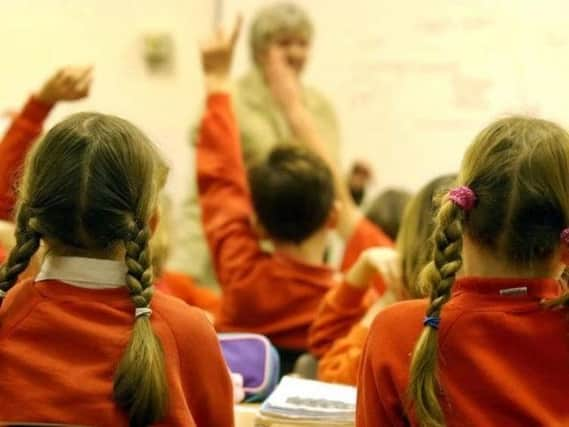Call for lockdown limit on Lancashire classroom sizes


The call comes after concern was raised last week – both locally and nationally – about the number of pupils still in the classroom following the government order on Monday that learning should move online for all but vulnerable children and those of key workers.
The Department for Education revised its guidance late on Friday to stress that even parents or carers with a “critical” role in society – and who were therefore eligible to send their child to school as normal – should keep them at home “if they can”.
Advertisement
Hide AdAdvertisement
Hide AdThe Local Democracy Reporting Service (LDRS) understands that the Lancashire branches of the National Education Union (NEU), the National Association of Headteachers (NAHT), the Association of School and College Leaders (ASCL), the NASUWT and UNISON agreed that the lockdown limit for schools in the county should be between 10 and 15 percent of the number of pupils on their roll.


Ian Watkinson, Lancashire’s representative on the NEU executive – and chair of its health and safety group – said that the experience of many Lancashire schools last week was a far cry from the first classroom closures last spring.
“The whole point of the current lockdown is to respond to the fact that we have got a virus that’s much more transmissible, with deaths and cases at higher rates than ever before – but we ended up with classrooms almost at [their usual] capacity in some instances.
“When I was covering vulnerable and key worker classes last spring, the maximum we had was seven or eight children.
Advertisement
Hide AdAdvertisement
Hide Ad“One Lancashire primary school last week had 180 pupils attending in total, another had 140. They are numbers that you would just never have seen during the first lockdown.
“Headteachers are crying out for a number that they can go up to if they have to,” Mr. Watkinson added.
Lancashire County Council tweeted a link to the updated government guidance on Sunday afternoon, adding: “School places for critical worker children are in high demand in some areas. If you’re a critical worker, you should keep your child at home if you can to help relieve pressure on our schools.”
The LDRS understands that schools in the county have been advised that demand for places among key worker families should be balanced against a school’s duty to operate safely in line with its own risk assessments – and that County Hall will support schools in making decisions on that basis.
Advertisement
Hide AdAdvertisement
Hide AdMr. Watkinson stressed that the unions understood the difficult decisions facing parents – but appealed to them to take up the offer of a classroom place only when it was “crucial” for them to undertake their role.
“We know some firms have been writing to parents and telling them: ‘You’re on the [key worker] list, so in you come’.
“It’s unbelievable how parents have been able to cope and adapt in the way they have done throughout the pandemic – and, unfortunately, they are going to have to carry on doing that because of the situation we are in.
“We’re working with the local authority and the entire education sector to do absolutely the best we can – but we all understand that we have got to keep the numbers in school down to a bare minimum to avoid more transmission of the virus.
Advertisement
Hide AdAdvertisement
Hide Ad“We know parents will try and work with schools and headteachers to make this happen.”
The LDRS has seen guidance issued to schools from one major council elsewhere in the North West advising them to prioritise places for vulnerable children and those of healthcare workers before allocating spaces to children of other critical workers.
The government’s full list of critical workers includes health and social care staff, the police, those involved in the production, distribution and sale of food and workers in the justice, utilities, communications and financial services sectors.
Pupils who may have difficulty accessing remote education - because of a lack of necessary devices or space at home - are now classed as vulnerable and so can also attend school as usual.
Comment Guidelines
National World encourages reader discussion on our stories. User feedback, insights and back-and-forth exchanges add a rich layer of context to reporting. Please review our Community Guidelines before commenting.